Home » Archives for Arcus Legal » Page 6
Home » Archives for Arcus Legal » Page 6
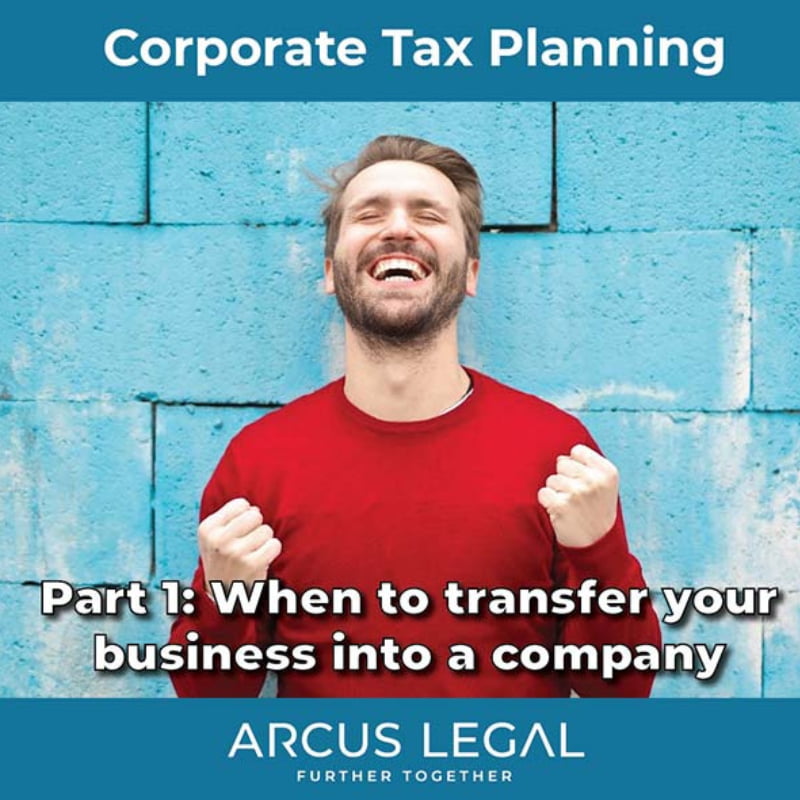
When your business is thriving, and you make more money than needed to cover your personal expenses, this is the time to consider incorporating your business (transferring your business to a company).
From a purely tax perspective, you do not want to be taxed on all your business income in your personal name. You are taxed more than 25% on the income from your business (It gets higher as you fall into higher income brackets), whereas your corporation will only be taxed 12% for the income earned in the corporation. That is a massive difference in dollars available for you to expand your business.… [Read more]
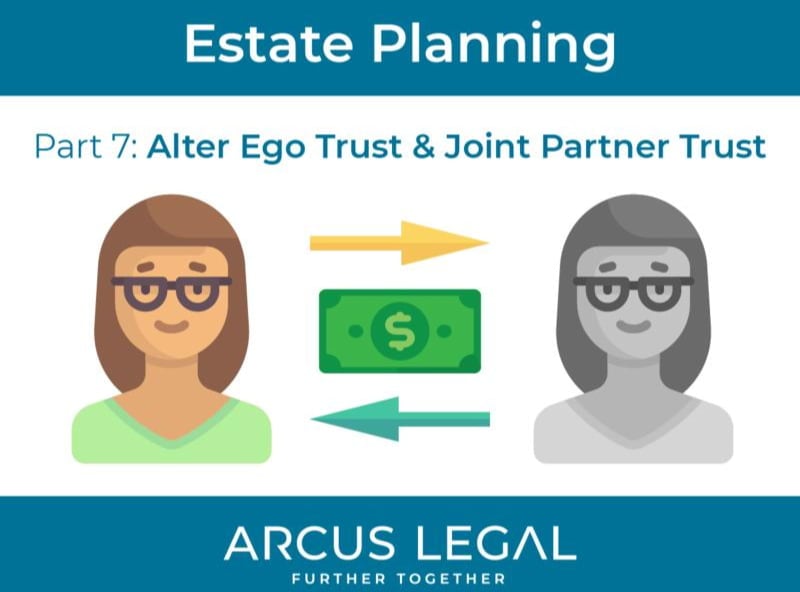
Alter Ego Trusts (AET) and Joint Partner Trusts (JPT) are a more complex method of estate planning, but can be well-suited to certain situations. You must be over the age of 65 years to consider these methods of planning.
AET and JPT both are often used as a method of probate avoidance. However, these trusts also are more private than a traditional Will, because your Will is publicly available once your executor files for probate. Where there is no probate, your distribution is not made publicly available.
The downside is that AET and JPT are more expensive and complicated to set up and maintain.… [Read more]
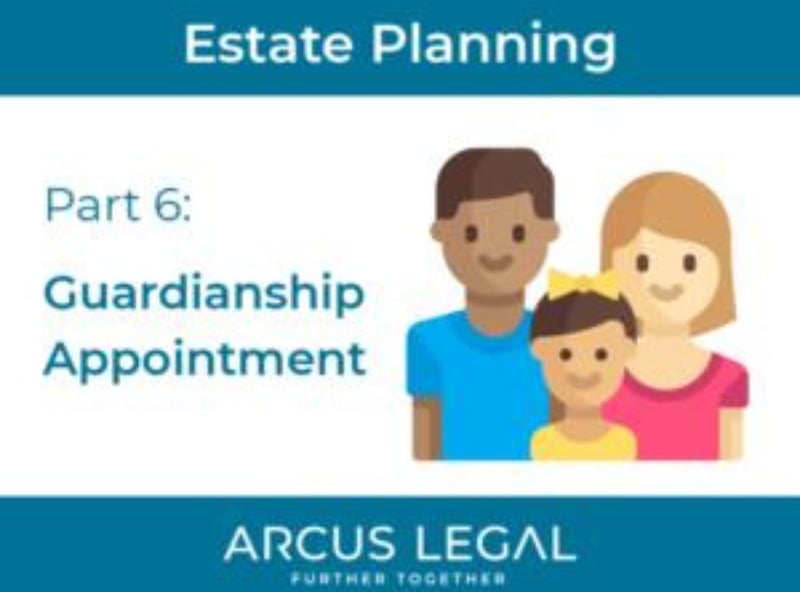
When going through the estate planning process, an important aspect is appointing a guardian for your minor children. A guardian may be needed for your children should you die or lose capacity. The appointment of guardianship is accomplished by a document that is outside the Will because it could be needed before your death if you become ill.
Any person under the age of 19 in Nova Scotia is considered a minor. If you are a parent it is important to turn your mind to who you would like your child to be cared for if you become incapable of caring for them.… [Read more]
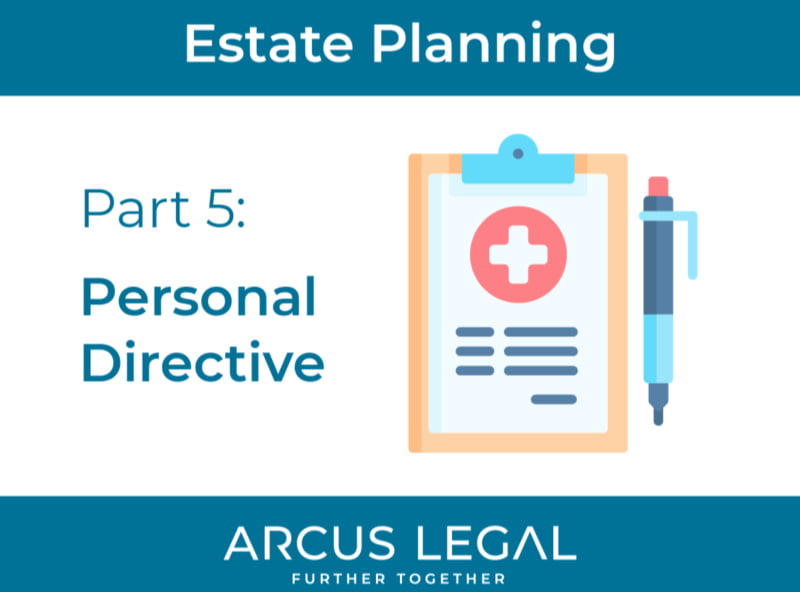
A Personal Care Directive (“PD”) is where you delegate your decision-making authority regarding your personal care and your medical decisions to a trusted loved one. The PD applies only during your life, and only applies once your capacity has been assessed and you are deemed incapable of making your own personal care and medical decisions.
The person you appoint under your PD is called your Delegate. Your Delegate is usually a trusted family member such as a spouse, sibling, or adult child.
Once you appoint your Delegate, speak to them about your wishes and philosophy surrounding your personal and end of life care.… [Read more]
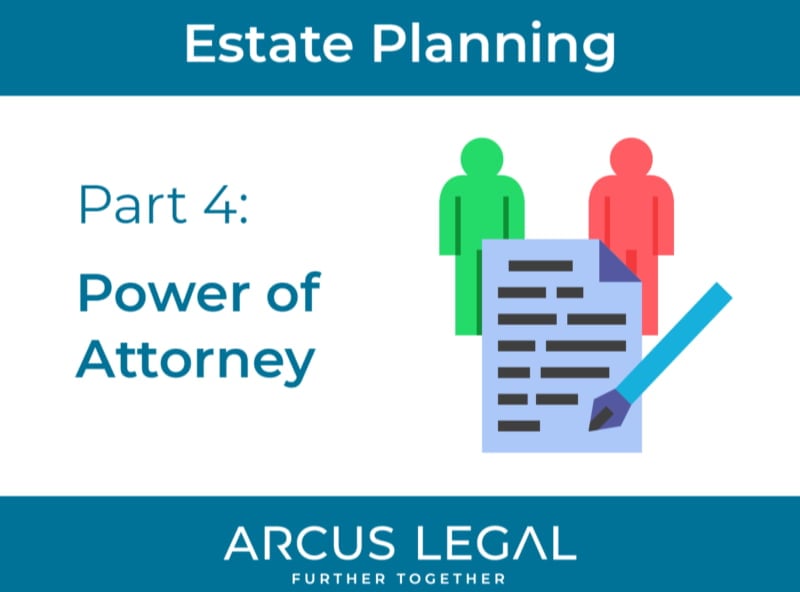
The Enduring Power of Attorney (“POA”) applies during your lifetime and ends on your death. The person you appoint in the POA is called the Attorney. The POA can be used by the Attorney when you are unable or unavailable to act for yourself in a financial or legal capacity. Your Attorney may act in situations if you become incapable of making financial and legal decisions. Your Attorney may also be instructed by you to act while you are still competent, but are physically unable to complete certain tasks. Your POA can be as broad or as specific as your needs require and you’ll review those options with your lawyer.… [Read more]
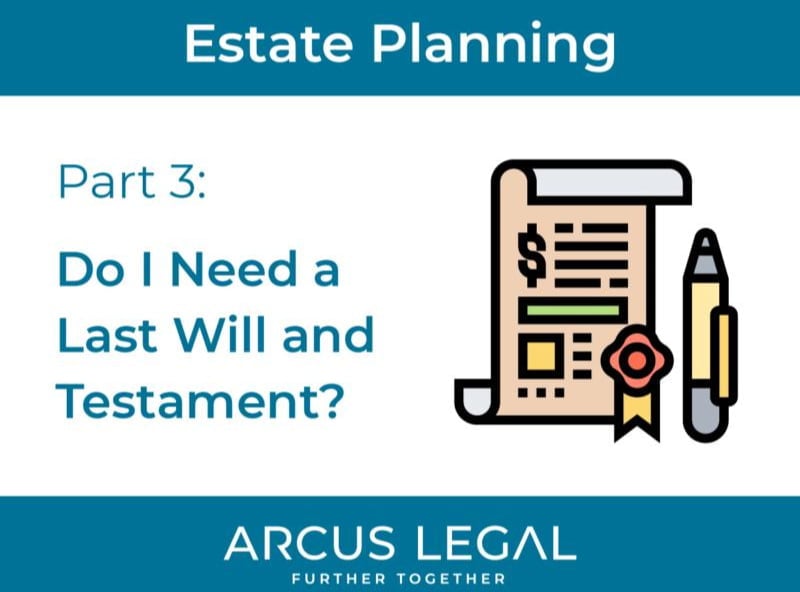
Do I need a Last Will and Testament?
YES! Every person should have a Last Will and Testament (“Will”). No matter how many assets you have or what your net worth is, every person should have a Will because your Will appoints a person to wrap up your affairs. Even if there are few assets to distribute, you will save your loved ones the cost and time of applying to the court to be appointed as your Personal Representative.
A Will takes effect on death, which means you can always change your Will during your life, so long as you are competent.… [Read more]
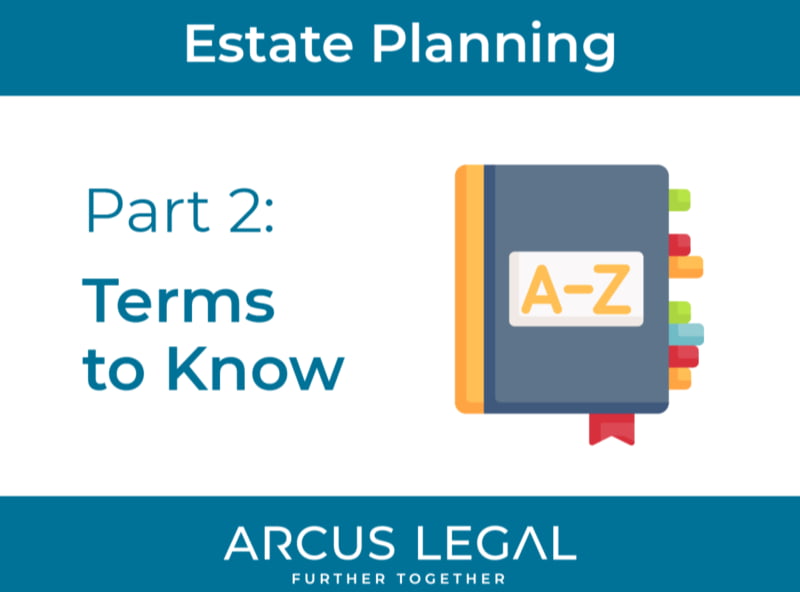
We know it can sometimes feel like a foreign language when addressing legal matters. Below are terms and acronyms commonly used in estate planning:
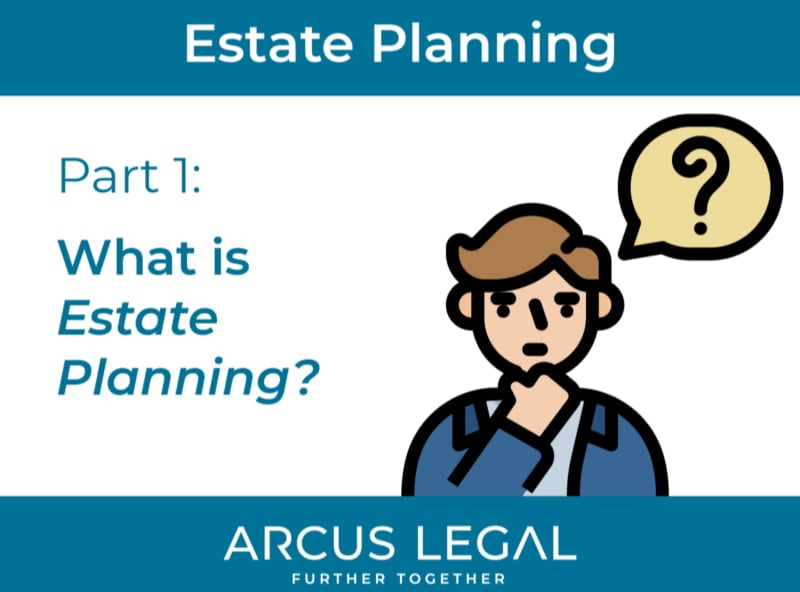
The term “estate planning” encompasses more than simply writing a Last Will and Testament. A Will is an important aspect of estate planning, but it is only one piece of the puzzle. The act of estate planning is ensuring your affairs are as organized as possible so that on your incapacity or death, your loved ones will be set up as best as possible to tackle the situation.
Depending on how complex your financial and professional situation is, you may require more than just your lawyer. Your accountant, insurance advisor, and financial advisor will also be involved. As tax laws become more confusing and complex, estate planning also becomes more complex.… [Read more]
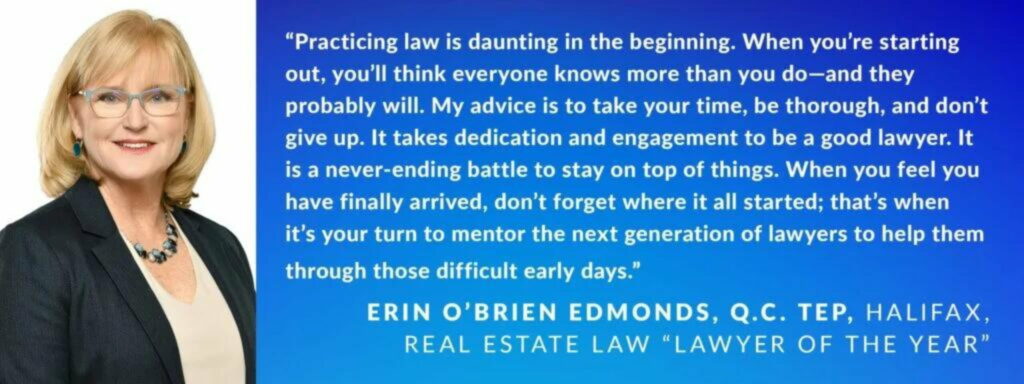
Best Lawyers’ article “Advice from Canada’s ‘Lawyer of the Year’ Honorees” showcases Erin O’Brien Edmonds’ answer to the question: “If you could give one piece of advice to your younger self at the start of your career, what would it be?”
… [Read more]Practicing law is daunting in the beginning. When you’re starting out, you’ll think everyone knows more than you do—and they probably will. My advice is to take your time, be thorough, and don’t give up. It takes dedication and engagement to be a good lawyer. It is a never-ending battle to stay on top of things. When you feel you have finally arrived, don’t forget where it all started; that’s when it’s your turn to mentor the next generation of lawyers to help them through those difficult early days.

On or before the closing date, your lawyer will send the Buyer’s lawyer the Deed, HST certificate, a Direction regarding the payment of the closing funds in trust, and a Statement of Adjustments describing the amount your lawyer will receive from the Buyer’s lawyer on the closing day, along with any other documentation requested by the Buyers on the Agreement of Purchase and Sale.
The Agreement will have a specific time in which you have to provide “vacant possession”. This is the time in which you will have to leave your home clean, empty, and unoccupied on the closing date and the Buyers will complete a final walk through of the property.… [Read more]